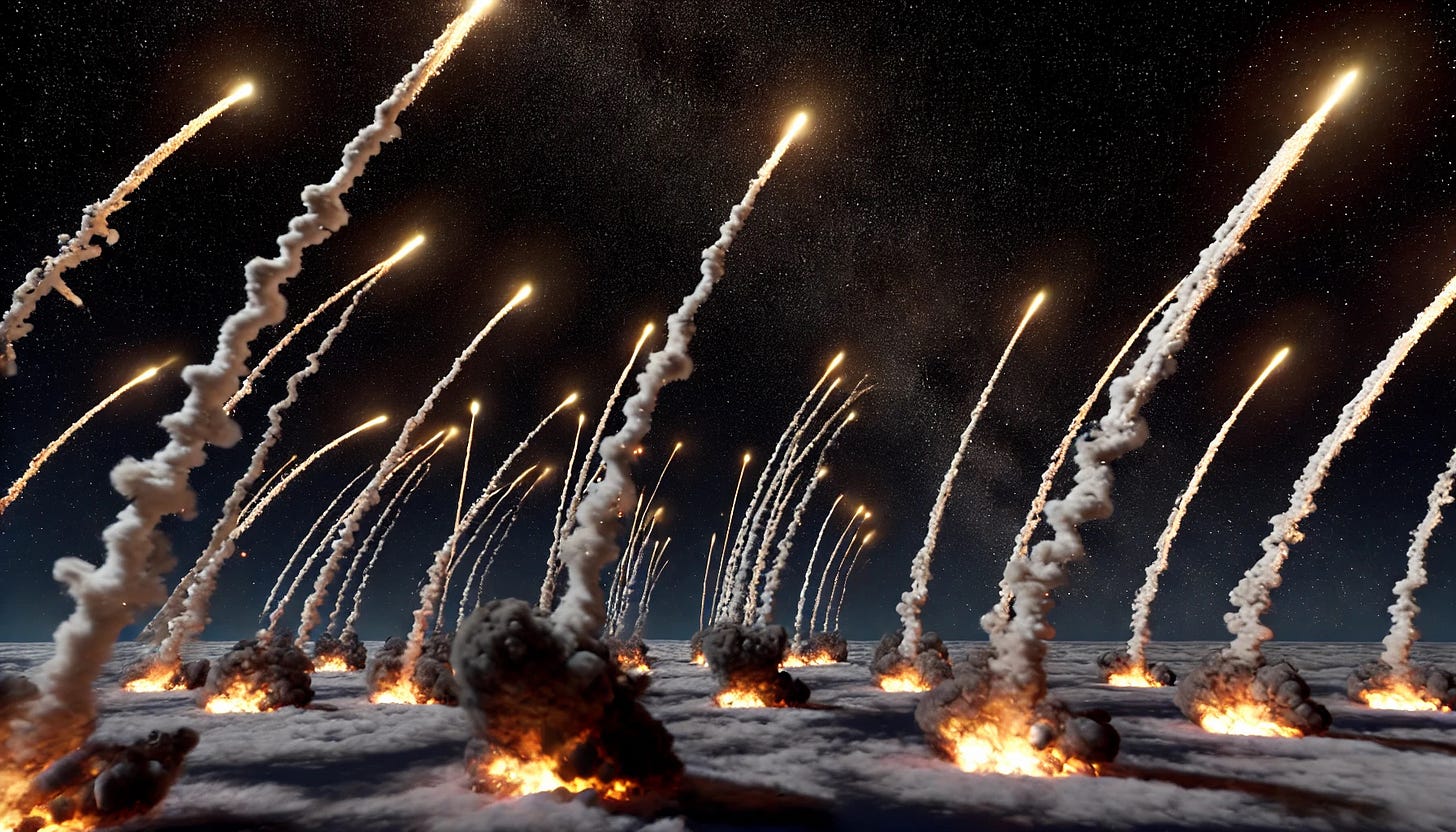Iran Attacks Israel with 180 Ballistic Missiles—and Again Miscalculates
The Islamic Regime is blundering into a strategic bind.
Editor’s note: While I usually write about media here at The Burning Telegraph, I spent 18 years living in Israel, where I covered Israeli politics, culture, as well as the region.
Iran fired salvos of hundreds of ballistic missiles at Israel this evening. At the time of writing, Israeli reports are saying the attack is over. So far there has been no significant damage reported by Israel. Israel civilians told me by video call from their safe rooms and apartment block bunkers that they felt secure and confident in the country’s ability to protect them. Some reported children playing games while adults were shuffling between safe rooms and the kitchen, preparing meals for the Rosh Hashanah festival that begins Wednesday evening.
Though this might seem to indicate this round of exchanges is over the reality is that’s far from the case. Iran has likely invited a much more powerful response than the one it received in April, when the Islamic Republic fired over 300 missiles and drones—99% of which were intercepted—at Israel in response to the IDF’s killing of a senior IRGC general. In that case, Israel responded with an almost symbolic warning, destroying an air defense system near Isfahan. That was a pinpoint strike designed not to inflict damage but to send a message.
This time, however, Israel finds itself in a drastically improved strategic posture. Hamas, to Israel’s south in the Gaza Strip, has been all but defeated militarily. Hezbollah, reeling from the beeper attacks on its rank-and-file, the decimation of its entire command structure—including its leader, Hassan Nasrallah, who was killed in his Beirut bunker by a massive Israeli airstrike—was in disarray even before Israel began a ground invasion early this week.
Israel no longer faces these two major deterrents. After 11 months of Hezbollah rocket fire that has resulted in the displacement of nearly 100,000 residents of Israel’s north, the country’s political echelon has drawn and enforced its red line. In Israel, there is a widespread belief that the only way to restore calms to its border, and security throughout the country, is to “cut off the head of the octopus,” as former prime minister Naftali Bennett put it last month.
This portends a much more powerful Israeli response than Iran has experienced before. Already with the April attack Israel demonstrated that it can bypass Iran’s air defenses. Without Hezbollah and Hamas, the Islamic Republic is more vulnerable than it has been since its founding in 1979.
It remains to be seen what form Israel’s response will take, but there is no doubt that it is being formulated now in the halls of political power in Jerusalem and in Israel’s military headquarters in Tel Aviv’s Kirya. What’s likely is that it will challenge Iran’s ability to respond, much as Israel has done over the past months with regard to Iran’s two major proxies.



This could also be completed much faster and more efficient if Biden, Blinken and Austin would give Israel the ammunition they asked for🚀
It’s been an inspiration to watch Israel succeed over and over again.